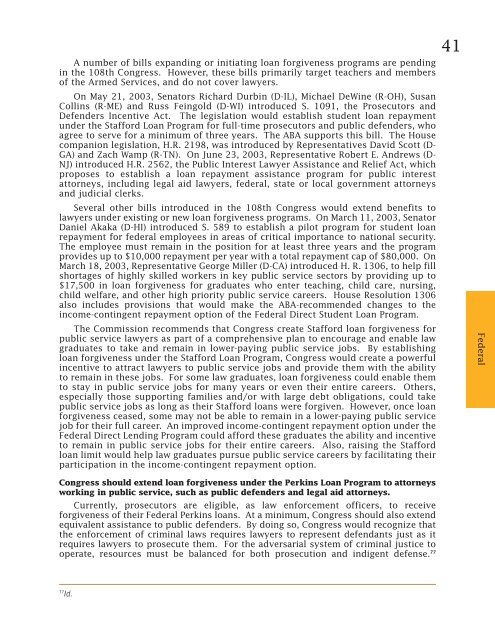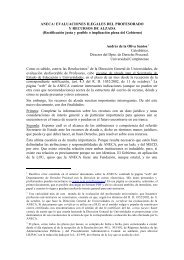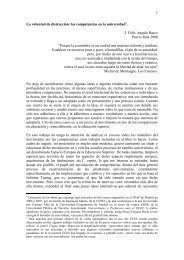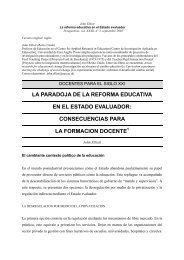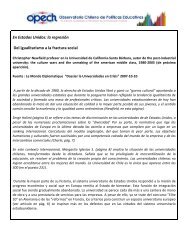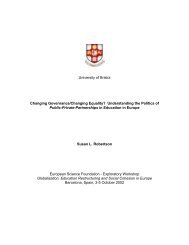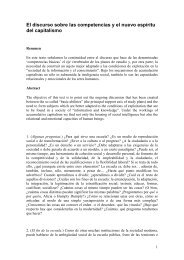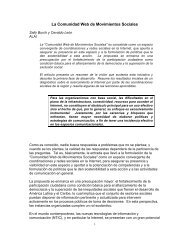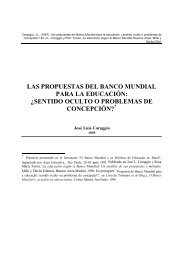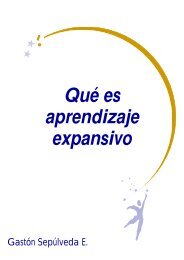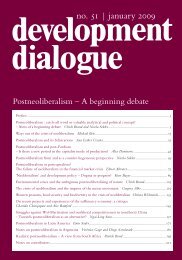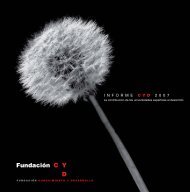Lifting the Burden: Law Student Debt as a Barrier to Public Service
Lifting the Burden: Law Student Debt as a Barrier to Public Service
Lifting the Burden: Law Student Debt as a Barrier to Public Service
Create successful ePaper yourself
Turn your PDF publications into a flip-book with our unique Google optimized e-Paper software.
A number of bills expanding or initiating loan forgiveness programs are pendingin <strong>the</strong> 108th Congress. However, <strong>the</strong>se bills primarily target teachers and membersof <strong>the</strong> Armed <strong>Service</strong>s, and do not cover lawyers.On May 21, 2003, Sena<strong>to</strong>rs Richard Durbin (D-IL), Michael DeWine (R-OH), SusanCollins (R-ME) and Russ Feingold (D-WI) introduced S. 1091, <strong>the</strong> Prosecu<strong>to</strong>rs andDefenders Incentive Act. The legislation would establish student loan repaymentunder <strong>the</strong> Stafford Loan Program for full-time prosecu<strong>to</strong>rs and public defenders, whoagree <strong>to</strong> serve for a minimum of three years. The ABA supports this bill. The Housecompanion legislation, H.R. 2198, w<strong>as</strong> introduced by Representatives David Scott (D-GA) and Zach Wamp (R-TN). On June 23, 2003, Representative Robert E. Andrews (D-NJ) introduced H.R. 2562, <strong>the</strong> <strong>Public</strong> Interest <strong>Law</strong>yer Assistance and Relief Act, whichproposes <strong>to</strong> establish a loan repayment <strong>as</strong>sistance program for public interestat<strong>to</strong>rneys, including legal aid lawyers, federal, state or local government at<strong>to</strong>rneysand judicial clerks.Several o<strong>the</strong>r bills introduced in <strong>the</strong> 108th Congress would extend benefits <strong>to</strong>lawyers under existing or new loan forgiveness programs. On March 11, 2003, Sena<strong>to</strong>rDaniel Akaka (D-HI) introduced S. 589 <strong>to</strong> establish a pilot program for student loanrepayment for federal employees in are<strong>as</strong> of critical importance <strong>to</strong> national security.The employee must remain in <strong>the</strong> position for at le<strong>as</strong>t three years and <strong>the</strong> programprovides up <strong>to</strong> $10,000 repayment per year with a <strong>to</strong>tal repayment cap of $80,000. OnMarch 18, 2003, Representative George Miller (D-CA) introduced H. R. 1306, <strong>to</strong> help fillshortages of highly skilled workers in key public service sec<strong>to</strong>rs by providing up <strong>to</strong>$17,500 in loan forgiveness for graduates who enter teaching, child care, nursing,child welfare, and o<strong>the</strong>r high priority public service careers. House Resolution 1306also includes provisions that would make <strong>the</strong> ABA-recommended changes <strong>to</strong> <strong>the</strong>income-contingent repayment option of <strong>the</strong> Federal Direct <strong>Student</strong> Loan Program.The Commission recommends that Congress create Stafford loan forgiveness forpublic service lawyers <strong>as</strong> part of a comprehensive plan <strong>to</strong> encourage and enable lawgraduates <strong>to</strong> take and remain in lower-paying public service jobs. By establishingloan forgiveness under <strong>the</strong> Stafford Loan Program, Congress would create a powerfulincentive <strong>to</strong> attract lawyers <strong>to</strong> public service jobs and provide <strong>the</strong>m with <strong>the</strong> ability<strong>to</strong> remain in <strong>the</strong>se jobs. For some law graduates, loan forgiveness could enable <strong>the</strong>m<strong>to</strong> stay in public service jobs for many years or even <strong>the</strong>ir entire careers. O<strong>the</strong>rs,especially those supporting families and/or with large debt obligations, could takepublic service jobs <strong>as</strong> long <strong>as</strong> <strong>the</strong>ir Stafford loans were forgiven. However, once loanforgiveness ce<strong>as</strong>ed, some may not be able <strong>to</strong> remain in a lower-paying public servicejob for <strong>the</strong>ir full career. An improved income-contingent repayment option under <strong>the</strong>Federal Direct Lending Program could afford <strong>the</strong>se graduates <strong>the</strong> ability and incentive<strong>to</strong> remain in public service jobs for <strong>the</strong>ir entire careers. Also, raising <strong>the</strong> Staffordloan limit would help law graduates pursue public service careers by facilitating <strong>the</strong>irparticipation in <strong>the</strong> income-contingent repayment option.Congress should extend loan forgiveness under <strong>the</strong> Perkins Loan Program <strong>to</strong> at<strong>to</strong>rneysworking in public service, such <strong>as</strong> public defenders and legal aid at<strong>to</strong>rneys.Currently, prosecu<strong>to</strong>rs are eligible, <strong>as</strong> law enforcement officers, <strong>to</strong> receiveforgiveness of <strong>the</strong>ir Federal Perkins loans. At a minimum, Congress should also extendequivalent <strong>as</strong>sistance <strong>to</strong> public defenders. By doing so, Congress would recognize that<strong>the</strong> enforcement of criminal laws requires lawyers <strong>to</strong> represent defendants just <strong>as</strong> itrequires lawyers <strong>to</strong> prosecute <strong>the</strong>m. For <strong>the</strong> adversarial system of criminal justice <strong>to</strong>operate, resources must be balanced for both prosecution and indigent defense. 7741Federal77Id.


